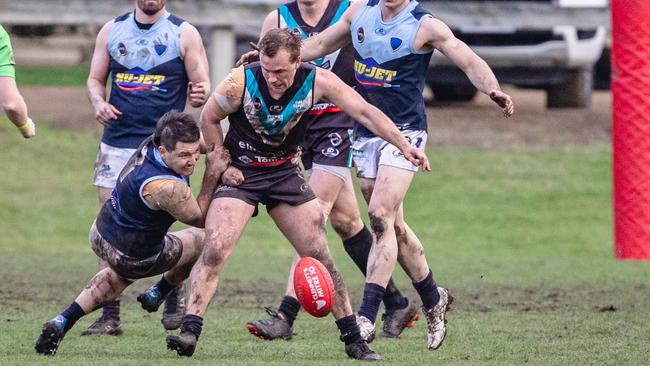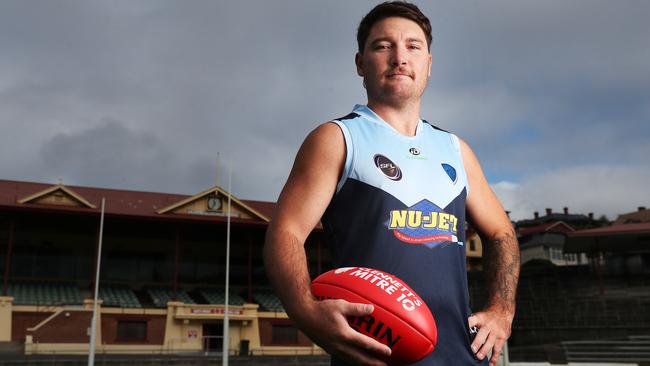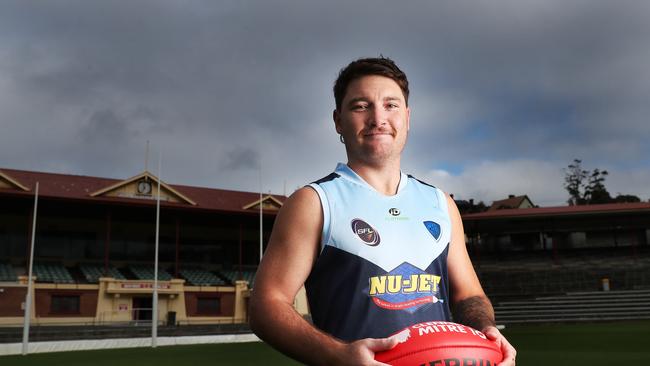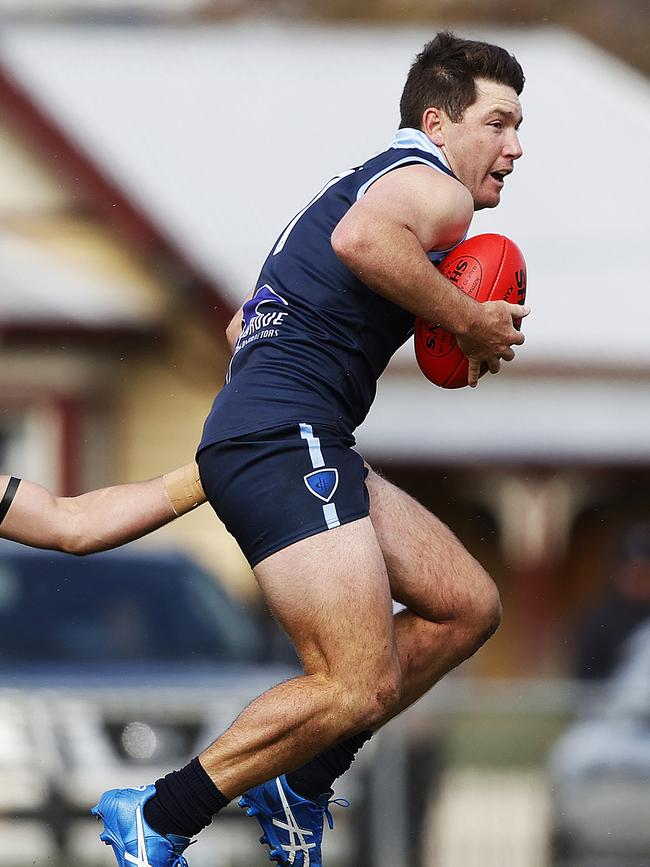Lindisfarne coach Michael Cassidy reacts to Jack Gleeson’s lifetime ban
Lindisfarne’s coach has called for an overhaul of the 16-match suspension rule that not only ended the playing career of his captain but will stop him from ever becoming a coach, umpire, team manager, runner, time-keeper, scoreboard attendant or water boy. CLUB’S REACTION>>>
Sport
Don't miss out on the headlines from Sport. Followed categories will be added to My News.
LINDISFARNE coach Michael Cassidy has called for an overhaul of the 16-match suspension rule that not only ended the playing career of his captain Jack Gleeson but will stop him from ever becoming a coach, umpire, team manager, runner, time-keeper, scoreboard attendant or water boy.
A former Clarence best-and-fairest and now Two Blues captain and the team’s midfield coach, Gleeson, 29, tipped over the 16-game limit for career suspensions two weeks ago when he copped a three-match ban for a sling tackle.
Despite being reduced to a one match suspension when it was challenged at the SFL tribunal last week, it was still enough to put Gleeson into the red, and at his final appeal on Monday night the appeals committee upheld the one-match ban.
Gleeson has been deregistered as a “participant”, which means he can no longer play football or be a coach.

Cassidy said it was a major loss to football because of a rule that no longer reflected the game today.
“It’s just devastating,” Cassidy said.
“They’ve got to do something about this rule.
“Things happen in footy week in, week out, and sometimes certain bumps and tackles are unavoidable.
“We play the game hard, which is how he plays the game _ he’s hard at it, hard at the footy, hard at the player, he tackles hard, and unfortunately it has gone against him.
“He plays the game hard and fair, and he’s done now, and it’s bloody sad.”
Cassidy hopes Gleeson can stick around.

“He has been a big part of where we’ve gotten to this year and hopefully he can still be a massive part of where we go,” he said.
“He was one of my assistants and our mids-coach.
“It’s disappointing for him as a player and a person, and disappointing for us as a club.”
Introduced 11 years ago, the deregistration policy was designed for “serial aggressive offenders, not low-level repeat offenders”.
“Back then you hardly ever got suspended for a tackle or a bump, and now there are so many ways to get suspended for two or three or four weeks at a time,” Cassidy said.
Gleeson, whose list of suspensions were mostly regarded as “football incidents”, went over the 16-game limit and earned deregistration playing for Leitchville-Gunbower in the Heathcote District Football League in Victoria in 2018.
He was found guilty of striking North Bendigo’s Manny Thalasinos in the second semi-final.
Gleeson sat out 2019 and applied to be re-registered in 2020 when returned to Tasmania to play for Lindisfarne.
The AFL Rule governing that says: “A deregistered player may apply for an exemption to re-register or appeal the deregistration under the appropriate laws of the league after 12 months. However, only one request can be made. Should a player be exempted and re-registered, any further suspension will result in permanent, irrevocable deregistration.”
Gleeson booted for life after appeal rejected
IT’S OFFICIAL, the football career of Jack Gleeson is over.
The former Clarence best and fairest winner and current Lindisfarne captain cannot play football anywhere in Australia ever again after failing to have his two-match suspension for a sling tackle on Huonville’s Matthew Coad overturned by the appeals committee on Monday night.
Gleeson had his original three-game suspension reduced to two games at the SFL tribunal last week but it was not enough to avoid deregistration for life, forcing the tough onballer and his legal team to take the matter to the appeals committee in a last-ditch effort to save his footy career.
With Gleeson already at the 15 game threshold of career suspensions allowed, the 29-year-old needed the entire two-match suspension dismissed on Monday night in order for him to be allowed to take the field again.

As per national guidelines, there are four grounds that a player can appeal a suspension:
· Challenge for an error of law.
· The decision was so unreasonable no other tribunal acting reasonable would have come to that decision.
· The classification of the level of the offence was excessive or inadequate.
· The sanction imposed was manifestly excessive or inadequate.
In a 90 minute hearing on Monday night the Two Blues’ skipper and his legal team appealed the suspension on all four grounds but were unsuccessful as the three-person appeals committee dismissed the appeal on all grounds.
The decision means Gleeson’s stellar football career is over effective immediately, with the star midfielder to be deregistered from every football league around Australia.
As reported by the Mercury on Friday, Gleeson has already been deregistered in his career after being suspended for striking an opponent while playing for Leitchville-Gunbower in the Heathcote District Football League in Victoria in 2018.

The suspension triggered automatic deregistration for exceeding the 15 game suspension limit, resulting in Gleeson sitting out the entire 2019 season before he successfully applied to be re-registered in 2020 to return to Tasmania to play for Lindisfarne.
Gleeson was eligible to play football again but having 16 games suspended to his name meant any single suspension of one game or more would rub him out for life.
As per the national guidelines a player cannot be re-registered more than once, meaning the career of one of the state’s best footballers is officially over.
Gleeson is a former TSL best and fairest winner with Clarence and earlier this year was co-captain of the SFL representative team.
The ladder-leading Two Blues are undefeated so far this season but will now be forced to strive for a premiership without its star skipper.
The outcome of Monday night’s hearing is sure to garner huge public interest, with the popular footballer’s suspension resulting in much public debate on social media as to whether the crime (s) fit the punishment.


